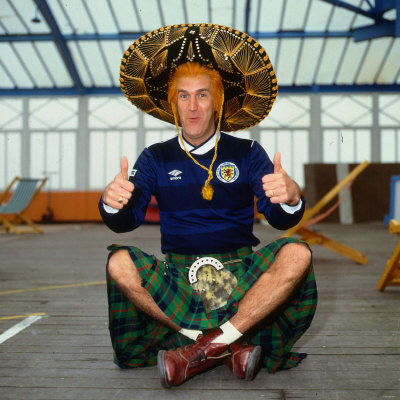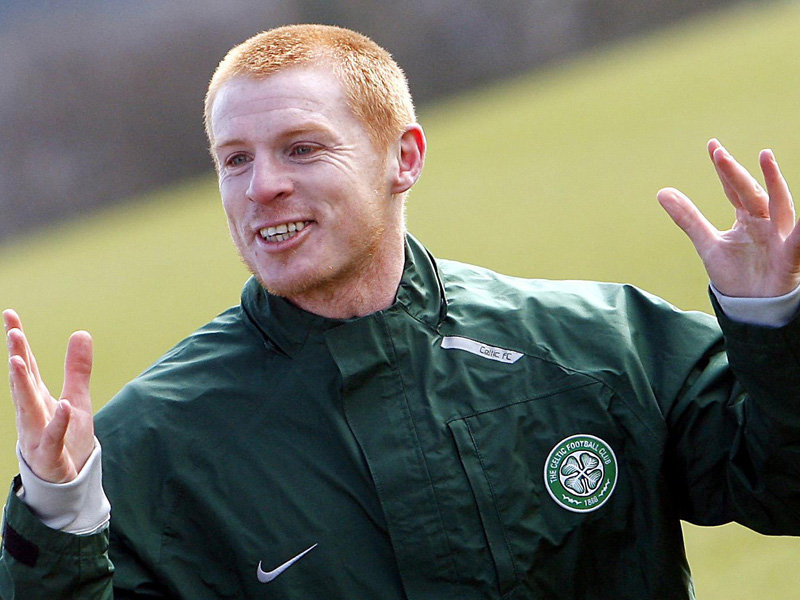Even with the best will in the world, one has to conclude that Jardine was at best a very average player. Playing the dynamic and effective McGrain out of position was an act of crass stupidity as it totally unbalanced the team.
One can only assume that Jardine’s inclusion was more important to the powers that be, than the general health of the whole team.
One also has to bear in mind that the very Celtic team that was carving out a huge name for itself in Europe from 1967 onwards, was seriously under-represented at national level. Today it seems scandalous that the likes of Kirk Broadfoot has amassed more caps than Bobby Murdoch, generally acknowledged to be one of the finest midfielders in Europe at the time.
The argument which is often advanced against Celtic having relatively few internationalists at this time, does not hold up to much scrutiny. Just exactly who were the sort of players for example keeping the likes of Murdoch out of the team? There is of course the legendary Jim Baxter. Baxter’s legend is based on not so much what he actually achieved, by what people in the press said he achieved. He had two decent seasons with Rangers, broke his leg and never fully recovered. His descent into alcoholism accelerated his demise and by 1968, his career as a top class player was effectively over.
John Greig also represented Scotland on a regular basis in the sixties, the same John Greig who was publicly humiliated in the 1969 Scottish Cup final, by a callow youth from Fife called George Connelly. It was Greig who witnessed Rangers’ longest ever capitulation to Celtic which lasted a decade, yet he was regularly chosen over his victors. Greig like Jardine was a thug, a man of very limited footballing ability and yet his inclusion was regarded as essential by the powers that be in that era. His mere presence would pander to a significant section of the Scottish population, and in the process hopefully fill the coffers.
It is hardly surprising therefore that Celtic’s supporters have entertained suspicions about the national team. The same supporters who on a weekly basis saw their heroes triumph at home and abroad at club level, saw the very same heroes overlooked or quite often subjected to vicious, sectarian abuse. The supreme irony is that Celtic was the first homogenous group of players from one country to win the European Cup in 1967. The great Real Madrid team was comprised of Spaniards, Hungarians and South Americans.
The teams that followed them, namely Inter Milan and Benfica also called upon foreign mercenaries to make up the numbers.
Celtic broke the mould, not only by being the first non- “Latin’ team to win the big prize, but also by using players of the same nationality.
The question of identity is key to this issue, and Celtic supporters especially felt excluded from many sections of Scottish society. The national team formed the pinnacle, and for many Celtic supporters it was a no go area.
It reeked of the Establishment and the very people who by their very nature were anti-Celtic to the core.
Many people might regard my musings as the utterings of a yet another paranoid Celtic supporter. Except for one thing. Aiden McGeady. The disgraceful abuse that this young man was forced to take, torpedoed the myth that Scotland could ever fully welcome Celtic players. McGeady chose for Ireland and was at the time a Celtic player. A heinous crime in the eyes of those who were the direct descendants of the very same people who booed Jimmy Johnstone, Danny McGrain and Kenny Dalglish from the Hampden terraces.
The problem isn’t McGeady or Ireland, just as the problem was never Jinky or Danny. The ‘problem’ lay in the mindset of people who can never accept Celtic players as fully integrated Scotsmen. Celtic will always remain alien in their eyes.
However, to be brutally fair it is a two way process. As I saw Scotland line up to entertain those footballing giants that are Lichtenstein, my stomach churned as I saw the likes of McGregor, McCulloch, Hutton, Boyd and Miller stand proudly to attention. We are shaped by our experiences, some more than others




